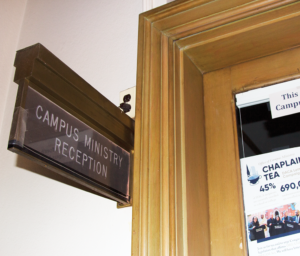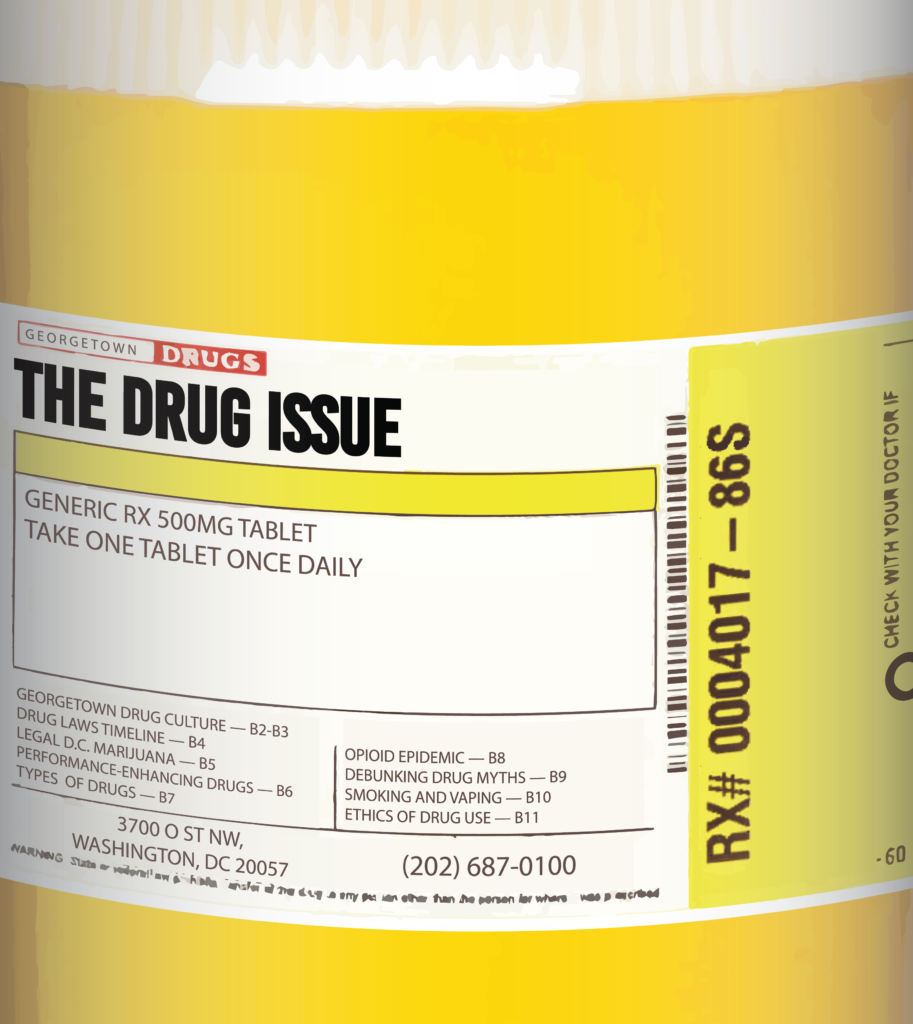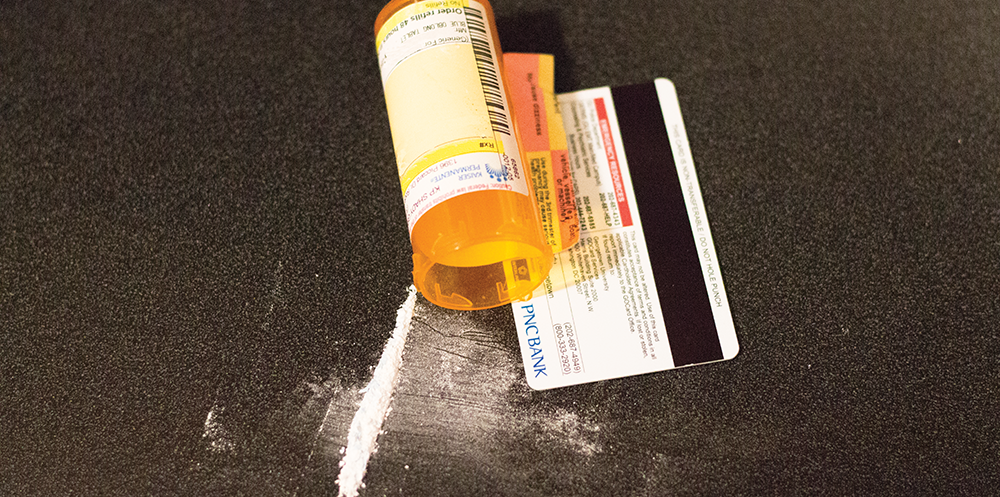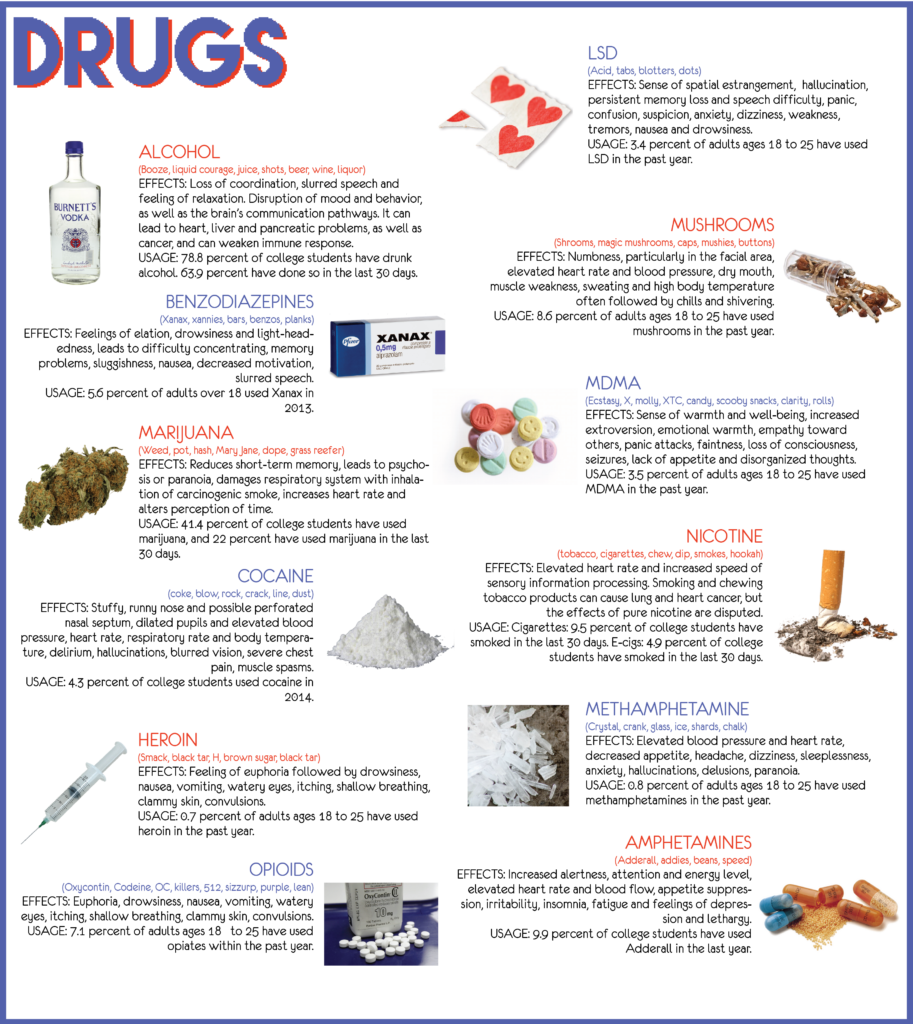
As a Jesuit university, Georgetown has always had a strong connection to religious traditions and ethics. But when drugs are involved, deeply held beliefs can seem dizzying and contradictory. From professional ethicists to everyday men and women of faith, Hoyas are doing the hard work of analyzing the ethics of drug use. Both religion and philosophy can inform the community about how it should consider drug use.
Western ethical philosophy particularly considers drug use from an angle that is intimately tied to the definition of humanity, human agency and the good life. Legal and economic issues aside, recreational drug use raises philosophical questions not only about how people should treat others, but about how they should treat themselves.
The three modern Western schools of ethical thought — utilitarianism, deontology and virtue ethics — all express different views on what is permissible.
Karen Stohr, Senior research scholar at the Kennedy Institute of Ethics and associate professor of philosophy, said the three schools disagree on the importance of harm to self and others.
Utilitarianism, a philosophy that examines the consequences of actions and deems moral the choices that maximize happiness and utility, is relatively tolerant of recreational drug use, so long as the drug in question is not addictive or damaging in the long term.
“If the drug in question is relatively harmless and creates a lot of pleasure, then, from a utilitarian standpoint, there would be nothing particularly wrong with it,” Stohr said. “In particular, utilitarians would think that the recreational use of marijuana is not a big deal.”
However, this perspective on drug use does not extend to harder drugs like heroin, as they have the potential through addiction to create damaging side effects in the long term that would outweigh the positive pleasure benefits of drug use in the short term.
However, other ethical philosophies put a greater emphasis on preserving the human capacity to reason. Deontology prioritizes the moral rules and the intentions of actions: If a certain action incapacitates the ability to reason, deontology would reject it.
“[Founder of deontology Immanuel] Kant thought that we have sort of a basic duty of self-respect to maintain hold of our rationality as best we can at all times,” Stohr said.
Kant prioritized humanity’s ability to reason and analyze choices critically, Stohr said.
“Kant was worried about people getting drunk for the sake of getting drunk. Because when you are drunk, you are not capable of acting in a rational way or treating others rationally. Insofar as that is true of people who are high or under the influence of other drugs, the same considerations would apply, Stohr said.”
If rationality is central to our conception of what it means to be a human being, then even a less intense high would itself be morally culpable, according to Kant’s logic.
Virtue ethicists, who follow the teachings of Aristotle regarding moderation and living an ethical life, fall somewhere in the middle of these two views.
“In virtue ethics, I think it would depend on the extent to which the drug use is compatible with acting well as a human being,” Stohr said. “So if you are an Aristotelian, you are going to ask the question of whether it is compatible with being an excellent human being.”

Philosophical considerations often intersect with deeply held religious views on recreational drug use. Views vary across religions. For example, paragraph 1291 of the Catechism of the Catholic Church, which sums up the beliefs of Catholics, states, “The use of drugs inflicts very grave damage on human health and life. Their use, except on strictly therapeutic grounds, is a grave offense.”
Similarly, the Sahih Muslim, a collection of authoritative sayings from the Prophet Mohammad, attributes the following hadith to the Prophet Muhammed: “Every intoxicant is khamr [wine] and every intoxicant is unlawful.”
For some religious traditions, drug use seems categorically forbidden.
However, the lived experience of believers, especially among the young believers at Georgetown, articulates faith in a more complicated way. According to Juliana Pyo (MSB ’18), a Roman Catholic, faith is negotiated, navigated and contested by the demands of life.
“I make the distinction between my religious views and my personal views,” Pyo said. “I totally understand the argument that your religious views definitely influence your personal values, but I don’t think it’s the root of your personal values.”
Some students, such as nondenominational Protestant Christian Joe Sonza (COL ’19), still strongly feel the impact of their religious beliefs on their attitudes.
“My point of reference to my Christianity is the Bible,” Sonza said. “And the Bible does not say ‘thou shall not roll up a joint,’ per se. But my personal guidance is something like a verse in 1 Corinthians where Paul says, ‘Whether you eat or drink, do so to glorify God.’ In what circumstance would that [drug use] be for the glory of God … I can’t imagine a scenario when it is.”
However, people of religious backgrounds can also express different attitudes toward mind-altering substances, as noted by Hindu student Noelle Dayal (COL ’19).
“I think Hinduism can promote healthy mind alteration and I think that it is possible for some drugs to do that in some capacity,” Dayal said.
Although religion plays an important part in how these attitudes and beliefs are formed, students at Georgetown are busy making up their own minds about these issues in ways that sometimes conform to religious doctrine and sometimes upend it. As legalization spreads, our religion and ethics will continue to digest the evolving spiritual and philosophical implications of recreational drugs.



















